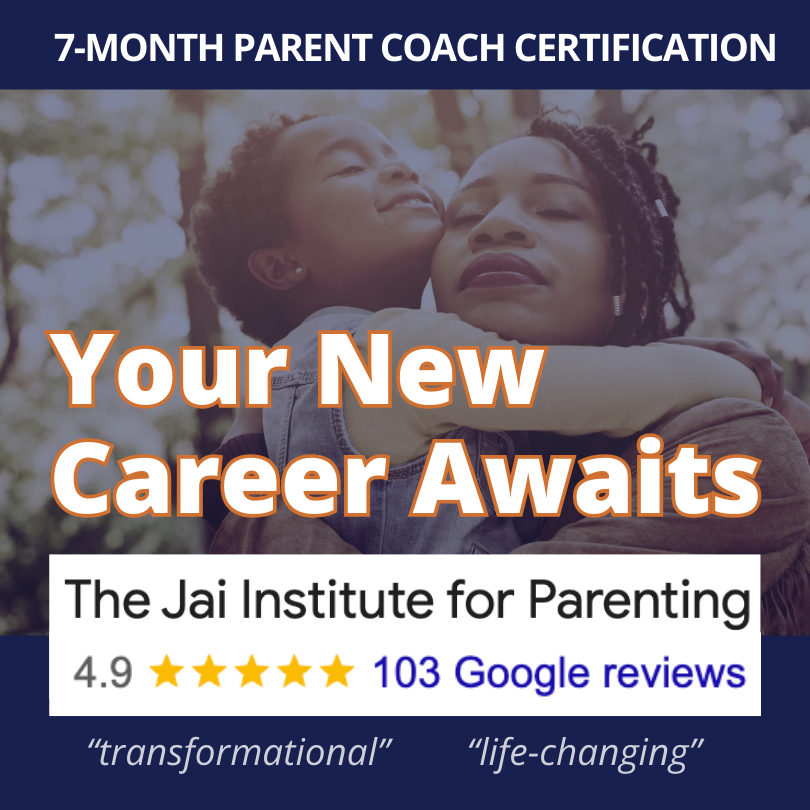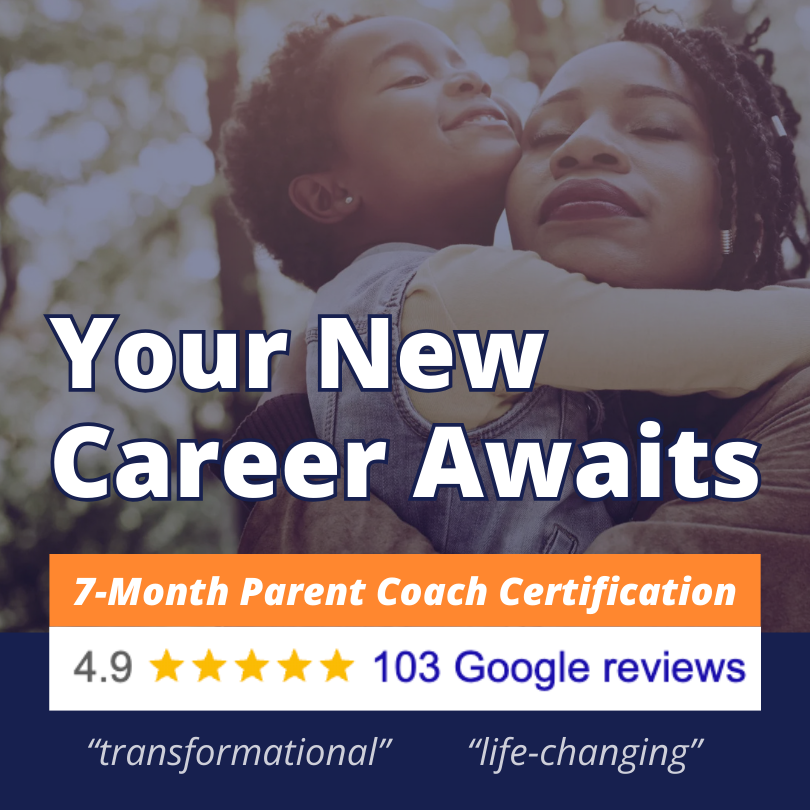Teacher Burnout & Behavior Management: Why Self-Awareness is the Missing Link

As an educator and certified parenting coach through the Jai Institute for Parenting, I’ve witnessed firsthand how self-awareness and personal growth transformed my classroom management and relational dynamics.
I noticed that many educators (especially myself) unconsciously bring their developmental histories and emotional patterns into the classroom, influencing how we manage behavior, handle conflict, and respond to stress.
Schools have made strides in implementing trauma-informed practices for students but often overlook the traumatic experiences and emotional needs of the adults who serve them. This oversight comes at a cost: teacher burnout, aggression, and high turnover rates.
By embracing
the principles of empowered parenting, administrators can unlock new strategies to support their teachers, foster healthier school cultures, and ultimately enhance the educational experience for everyone involved.
The Overlooked Reality of Teaching
Teachers, like parents, often carry the dynamics of their own upbringing into the classroom without even realizing it. Our unique childhood experiences, assumptions, and conditioned reactive beliefs often shape how we engage with students, manage the classroom, and handle conflict.
These patterns, many of which operate beneath the surface, tend to emerge most when we’re stressed or operating in survival mode. This can lead to challenges such as inequities in discipline, heightened aggression, chronic stress, burnout, and, for some, leaving the profession altogether.
When teaching in a state of survival, we are often "at the mercy of our reactivity." In these moments, despite our best intentions, we default to entrenched behavior patterns that feel familiar and safe—whether it’s raising our voices, issuing harsh consequences, or doubling down on control.
For example, I never wanted to yell or take away recess for days at a time, but under stress, those reactive measures felt like the only tools I had. Even when administrators encouraged us to implement strategies like positive discipline or restorative justice circles, these approaches felt out of reach when I was overwhelmed or triggered.
The Myths About Adult Behavior
Far too often, the support provided to teachers is built on myths that ignore the complex realities of adult behavior. Some of the most common myths include:
“Adults know how to handle conflict.”
The truth is many adults never learned healthy conflict-resolution strategies during their upbringing. Teachers may struggle to resolve disagreements with students, colleagues, or parents without the tools to navigate disagreements effectively.
“Adults should be independent and self-sufficient.”
This myth fosters the belief that seeking help or emotional support is a sign of weakness. In reality, humans thrive in collaborative and connected environments, and teachers are no exception.
“Adults aren’t impacted by their past.”
Contrary to this misconception, past experiences—especially those from childhood—profoundly shape our behaviors, triggers, and emotional responses.
Recognizing and addressing the generational patterns that influence us every day is essential for personal growth and professional effectiveness.
Moving Beyond Surface-Level Solutions
Unfortunately, the support offered to teachers often relies on these myths. Solutions are reduced to surface-level incentives like jean passes or treats in the front office, or worse, punitive measures rooted in shame and blame. While well-intentioned, these approaches fail to address educators' deeper emotional and psychological needs, leaving them feeling unseen, undervalued, and unsupported.
But what if we could provide teachers with meaningful, lasting support that truly addresses the root causes of their challenges? What if we helped them become aware of their conditioned responses, process their emotions, and develop
new tools for navigating classroom stress?
Impact of Parent Coaching on Schools
Supporting teachers in a transformative way requires a shift in perspective. Rather than relying on willpower or external rewards, we must create opportunities for educators to explore their internal world—the beliefs, experiences, and patterns driving their behavior. This is where the Jai Institute for Parenting program becomes a game-changer.
The Jai Institute for Parenting’s Empowered Parenting Framework supports parents in achieving their family goals by successfully breaking through limiting beliefs, assumptions, and conditioned reactive beliefs. School leaders can apply the same transformative support for their teachers. By utilizing
Jai’s research-backed approach rooted in attachment theory and emotional intelligence, administrators can provide educators with trauma-informed support by addressing unconscious triggers and conditioned responses often arising in moments of stress or overwhelm.
We embrace the “Leader Go First” framework, which ensures that all participants first experience this transformative journey from the client’s perspective. This foundational phase allows for a deep personal understanding of the principles in action.
The next phase is learning and practicing the coaching skills. By understanding the 5D Coaching Process, administrators gain practical strategies to break through limiting beliefs and reactive behaviors—not only in themselves but also when working with teachers. This approach enables administrators to move beyond surface-level incentives or punitive measures and instead foster meaningful connections with their staff.
For example, when teachers struggle with burnout or classroom challenges, administrators trained in this program are equipped to offer empathetic, constructive support that addresses the root causes rather than shame, blame, and judgment.
Moreover, the Jai Institute program encourages a cultural shift within schools by modeling relational leadership. Administrators who approach their team with empathy, curiosity, and compassion set the tone for a supportive and collaborative school environment.
As teachers feel seen, valued, and understood, they are more likely to extend that same relational approach to their students. This creates a ripple effect, transforming the school culture from survival mode to thriving connection and mutual respect.
How You Can Integrate this Certification
Leading a school is no small task. With responsibilities ranging from state testing to daily operations, coaching every teacher through a 12-week program may not be feasible. However, the Jai Institute for Parenting certification offers flexible and impactful ways to support the emotional well-being of your staff without adding to your already full plate.
1. A New Lens for Understanding Adult Behavior
This certification equips administrators with a deeper understanding of adult behavior. By recognizing how past experiences, emotional triggers, and unconscious patterns shape actions, you can approach staff challenges with empathy and clarity. This insight enables you to address the root causes of issues rather than relying on surface-level solutions, fostering a culture of respect, collaboration, and trust within your school community.
2. Tailored Workshops for Your School
Use the principles of the certification to design workshops that meet the specific needs of your staff. Topics like emotional regulation, unconscious bias, and effective communication can offer teachers practical strategies for improving their interactions with students, colleagues, and parents. These workshops go beyond traditional professional development, providing teachers with tools to navigate challenges with greater confidence and emotional intelligence. Additionally, these sessions create a shared language and understanding among staff, promoting unity and consistency across the school.
3. Holding Space for Emotional Growth
As an administrator, you can embody the principles of this program by holding space for your teachers’ emotional well-being. This means creating environments where teachers feel safe to share their challenges, reflect on their experiences, and celebrate their successes. By prioritizing empathy, curiosity, and connection, you set the tone for a school culture that values emotional growth. Teachers who feel supported in this way are more likely to extend that same care and connection to their students, creating a ripple effect of trust and resilience throughout your school.
Take the Leap
By integrating the Empowered Parenting Framework into your leadership approach, you can create a school culture that prioritizes connection, empathy, and growth for both teachers and students. This transformative perspective equips administrators with the tools to address challenges at their roots, foster meaningful relationships, and empower educators to thrive.
If you’re passionate about fostering connection and growth in your school, classroom, or community,
Jai’s Parent Coach Certification Program is here to help. Together, we can build environments where educators and students truly thrive.
Meet Your Author,
Shaella Freeman
Shaella Freeman is a Jai Master Certified Parenting Coach, former educator, and cool aunt to her nieces and nephews. She is passionate about reimagining education and discipline with empathy, connection, and communication.
In her work, Shaella combines her M.Ed. in Emotional and Behavioral Disorders with relational safety strategies to empower educators in the classroom.
When she is not coaching, she is at the gym, watching Abott Elementary, or on FaceTime with her nieces and nephews.
Connect with Shaella at: shaellafreeman.com
READ MORE:
Curious for more?














